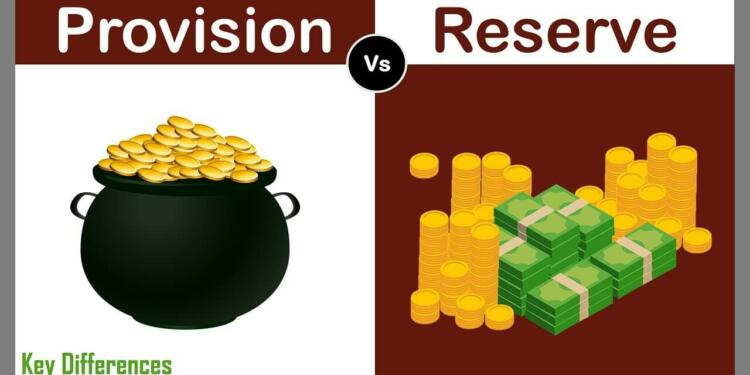Understanding 10 Difference Between Provision and Reserve
The terms “provision” and “reserve” are often confusing in the financial industry. Explore this guide to easily understand difference between Provision and Reserve, as well as their unique roles and consequences.
Difference Between Provision and Reserve
Two key terms that are frequently used in discussions about money are provisions and reserves. Despite having somewhat similar sounds, these terms have distinct applications and meanings. Let’s examine the ten main Difference Between Provision and Reserve.
Meaning: A reserve is money set aside for unexpected future losses or expenses, whereas a provision is money set aside for known or anticipated future expenses.
Purpose: The goal of provisions is to pay for particular projected expenses, such as potential losses or future repairs. On the other hand, reserves serve as a safety net in case of unforeseen circumstances or emergencies.
Use: Reserves serve as a safety net in case something unplanned happens, while provisions are used to plan ahead for known future expenses.
Certainty: Reserves are more of a safety measure against unexpected events, whereas provisions are based on an accurate estimate of future costs.
Timeframe: While reserves are usually accumulated over a longer period of time, provisions are typically planned for and made in the short term.
Regulations: Reserves may be managed with greater flexibility than provisions, which are frequently restricted by particular accounting rules and regulations.
Financial impact: While reserves are frequently not shown in a company’s daily financial performance, provisions can have a direct impact on a company’s profit and loss statement.
Risk management: While reserves are useful in managing unforeseen events or unknown risks, provisions assist in managing known risks.
Also Read: What is the derivative of cosec x? Simple Term Explanation
Specificity: Reserves are more of a general pool of money set aside for any unexpected needs, whereas provisions are allocated for specific expenses or losses.
Disclosure: While reserves may not always need the same degree of thorough disclosure, provisions must always be made clear in a company’s financial reports.
You can better appreciate the significance of wise money management in various contexts by being aware of these difference between Provision and Reserve. Provisions and reserves are essential to the stability of businesses and finances, whether they are being used to save for rainy days or to plan ahead for anticipated expenses.























